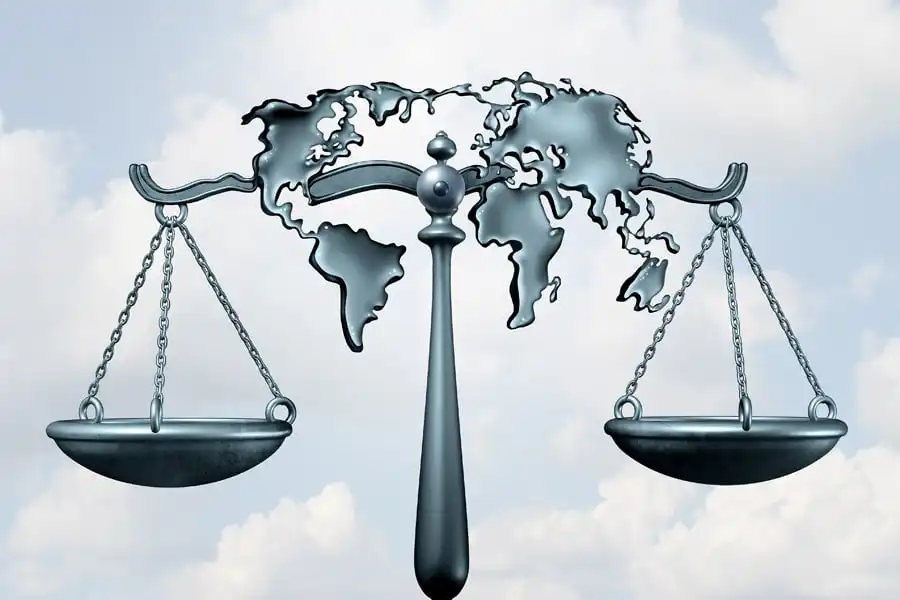Foreign court decisions are not automatically applied in France. They have legal effect only in the State in which they were issued. What is an exequatur and when is it required? In addition to reviewing the definition of an exequatur, we will also take a look at the procedure and what documents are required. Finally, we will discuss the need of a sworn translation to ensure that you have the best chance of success.
What is an exequatur in France?
Definition of exequatur
In international law, exequatur (from the Latin word meaning to execute) is a judicial procedure that allows a person or company to obtain recognition by the court. It allows the enforcement on French territory of a judgment rendered abroad.
The exequatur procedure is governed by articles 509 to 509-7 of the French Code of Civil Procedure, which provide that “judgments rendered by foreign courts and documents received by foreign officers are enforceable in the territory of the Republic of France in the manner and in the cases provided for by law”.
Remember:
In concrete terms, an exequatur procedure is the transposition of a foreign court decision into domestic law in order to benefit from the legal effects attached to it.
Which jurisdiction does it fall under?
In France, the exequatur procedure falls under the exclusive jurisdiction of the High Court. It is up to the lawyer to file an exequatur request.
When is an exequatur required in France?
This exequatur procedure may involve court decisions, arbitral sentencing, authentic instruments or court settlements pronounced or made abroad.
What is its scope?
Almost all court decisions concerning private relationships made abroad can take effect on French territory. The exequatur may, for example, be related to a civil status record drawn up abroad. For this to be effective, it must be recognised on French territory. It may also be a debt-related sentencing. In order to be able to seize property, it is necessary to ask the court to recognise this sentencing in France.
Note:
Some foreign decisions automatically take effect in France. It is not necessary to request exequatur procedures in matters related to:
- matrimonial (divorce judgements) and parental authority (custody, access or guardianship)
- international adoption.
- undisputed claims.
Finally, account must be taken of any international agreements that may have been concluded between France and the country concerned.
What conditions must be met?
To be applied, the exequatur must meet certain conditions. The decisions must have been rendered by an authorised foreign judicial authority (i.e. the jurisdiction of the foreign court that rendered the decision is verified) and in compliance with the procedural rules. In addition, they must be enforceable in their country of origin and respect the protection of the individual (i.e. respect compliance with international public policy). Finally, the absence of fraud must be verified by the French judge. The exequatur can be refused if only one condition is missing.
The exequatur procedure in France
France may have concluded a bilateral international convention with the country in which the judgment was rendered. This must be ascertained. These are the “judicial cooperation agreements”. These lay down the conditions under which a foreign judgment may be granted exequatur. It should be noted that in the absence of an agreement, the exequatur regime for a foreign judgment is the common law regime.
The documents needed to carry out an exequatur are:
- an original of the judgment or document, usually with an apostille;
- a certificate of custom from a foreign lawyer confirming that the judgment or document is final in the country where it was issued;
- a sworn translation of the foreign judgment or document.
Read also: Formal notice abroad: what is the procedure?
Why is a sworn translation required?
A sworn translation is absolutely necessary. This type of translation, because of its specificity, can only be handled by an expert sworn translator. Thus, in order to apositise a translation, it must be done by a sworn translator, whose signature will be authenticated. Indeed, the sworn translator will have taken an oath before the Court of Appeal. The expert translator has both linguistic and legal skills, enabling him or her to deliver a certified translation of the documents.
Legally, an exequatur is the recognition in France of a foreign act, sentence or judgment. To put it plainly, an exequatur is a procedure aimed at the forced execution in France of a foreign court decision. Three people are involved in the procedure: the bailiff who issues the summons, the lawyer who represents you in court and the sworn translator if the foreign judgment or document is not in French. Be patient, an exequatur procedure usually takes 6 months to a year, or even longer if there are difficulties.

